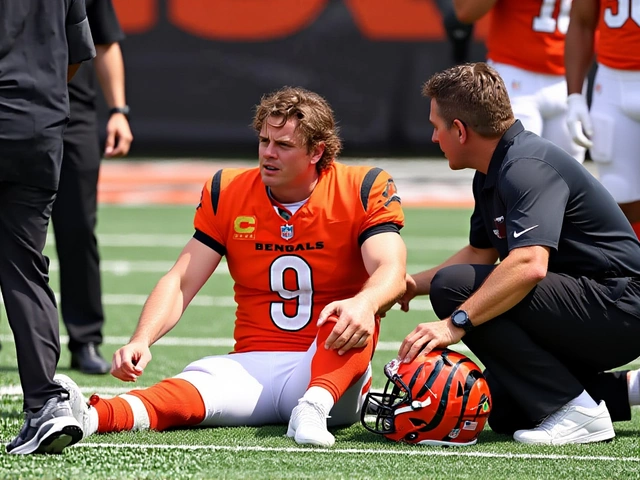
When Jack White steps onto the field at Ford Field on Thanksgiving Day, it won’t just be another concert—it’ll be a homecoming. The Detroit-born musician, whose raw, gritty sound helped redefine rock for a generation, is returning to the city where he first picked up a drumstick at age 19, now as a GRAMMY-winning icon with a legacy spanning four bands, a groundbreaking record label, and a love letter to his roots written in vinyl and verse.
A Detroit Kid Who Never Really Left
Born John Anthony Gillis on July 9, 1975, in southwest Detroit, White was the youngest of ten children raised in a Catholic household. His father, Gorman M. Gillis, worked as a building maintenance superintendent for the Archdiocese of Detroit; his mother, Teresa Gillis, served as a secretary in the cardinal’s office. Both parents were deeply embedded in the city’s religious infrastructure, and their Polish-Scottish heritage shaped a household where discipline met creativity. White spent his formative years surrounded by the clang of auto plants, the soul of Motown echoes, and the underground punk scenes that pulsed through Detroit’s abandoned warehouses. By 1996, after drumming for the garage-rock outfit Goober & the Peas, White was working as an upholsterer by day and playing in underground bands by night. He wasn’t chasing fame—he was chasing sound. That changed in 1997, when he formed the White Stripes with then-wife Megan White, a Grosse Pointe Woods native whose minimalist drumming became the heartbeat of their blues-punk rebellion.The White Stripes and the World That Followed
No one expected the White Stripes to go global. A two-piece band dressed head-to-toe in red, white, and black? In 2001, with the release of White Blood Cells and the explosive single “Fell in Love with a Girl,” the world took notice. The music video, shot in a Detroit backyard with a child’s toy car, became iconic. But success brought friction. By 2005, White had moved to Nashville, telling the Associated Press he couldn’t handle the “negativity” festering in Detroit’s music scene after the band’s rise. It wasn’t a rejection of the city—it was a retreat from its pressure. Still, he never stopped loving it. In 2006, he published a poem titled Courageous Dream’s Concern, a tender ode to Detroit’s resilience and his own complicated affection for it. “I didn’t leave because I hated it,” he wrote. “I left because I loved it too much to watch it break.”Expanding the Sound: Raconteurs, Dead Weather, and Third Man
White didn’t slow down after the White Stripes. In 2006, he formed the Raconteurs with Brendan Benson, Jake Blanton, and Patrick Keeler—a band that gave him space to share vocals and songwriting, revealing a melodic side fans hadn’t fully seen. Then came the Dead Weather in 2009, a dark, blues-drenched supergroup with Alison Mosshart and Dean Fertita. Their debut album, Horehound, sounded like a haunted Detroit basement recorded in a thunderstorm. That same year, White opened Third Man Records in Nashville. What began as a small storefront with a live recording booth has since released over 300 records, from country legend Loretta Lynn’s GRAMMY-winning Van Lear Rose to experimental Detroit rapper Black Milk. Third Man isn’t just a label—it’s a time capsule. It still presses vinyl on a 1950s machine, hosts live broadcasts from its Detroit outpost, and even sells custom wax cylinders.
Why This Halftime Show Matters
The Detroit Lions have never had a halftime performer quite like this. Past shows featured pop stars and chart-toppers. This time, they’re honoring a man who built his career on grit, not algorithms. White has won 11 GRAMMYs across eight categories—more than any other artist in the rock genre since 2000—with 29 nominations total. He’s played arenas from Tokyo to Paris, but this? This is different. For Detroiters, it’s personal. The city’s music scene—once dismissed as a relic—has seen a renaissance in recent years, fueled in part by White’s enduring influence. Local bands still cite him as their north star. The Lions’ decision to bring him back isn’t just marketing—it’s recognition. A city that gave him his first stage is now giving him its biggest one.What’s Next for Jack White?
White has hinted at new music under his own name, possibly his first solo album since 2014’s Blunderbuss. He’s also expanding Third Man’s Detroit operations, with plans to open a new vinyl pressing plant in the city’s east side by 2025. “Detroit doesn’t need saving,” he said in a 2022 interview. “It needs listening.” And now, on Thanksgiving, the whole country will listen.Frequently Asked Questions
Why is Jack White performing at the Lions’ Thanksgiving game?
The Detroit Lions chose Jack White to honor his deep ties to the city, despite his move to Nashville in 2005. As a native of southwest Detroit who rose from underground bands to global fame, his return symbolizes the city’s cultural resilience. The performance is both a celebration of local talent and a nod to the Lions’ history of featuring iconic Michigan artists during the holiday game.
How many GRAMMYs has Jack White won, and in what categories?
Jack White has won 11 GRAMMY Awards across eight categories, including Best Rock Album, Best Alternative Music Album, Best Rock Performance, and Best Country Collaboration with Vocals. His GRAMMYs span work with the White Stripes, the Raconteurs, and his production on Loretta Lynn’s Van Lear Rose. He holds 29 career nominations, making him one of the most decorated rock artists of the 21st century.
What is Third Man Records, and why is it important?
Founded by Jack White in Nashville in 2009, Third Man Records is an independent label and recording studio known for its analog production methods and artist-first ethos. It has released over 300 records, including works by Loretta Lynn, Wanda Jackson, and Detroit artists like Black Milk. Third Man also operates a live venue and vinyl pressing plant, preserving physical music formats in a digital age.
Did Jack White really leave Detroit because of negativity?
Yes, in a 2006 Associated Press interview, White cited “negativity” in Detroit’s music scene after the White Stripes’ success as a reason for relocating. But he later clarified it wasn’t hatred—he felt the city’s expectations were suffocating. He expressed his enduring love for Detroit in his poem Courageous Dream’s Concern and has since supported local artists through Third Man’s Detroit initiatives.
Will Jack White perform White Stripes songs at the halftime show?
While not officially confirmed, it’s highly likely. White Stripes classics like “Seven Nation Army,” “Fell in Love with a Girl,” and “Icky Thump” are staples of his live shows and instantly recognizable to football crowds. Given the emotional weight of the homecoming, fans should expect at least one or two of these anthems.
Is Jack White planning to move back to Detroit?
White has not announced a permanent return, but he’s deepening his ties. Third Man Records is expanding its Detroit footprint with a new vinyl pressing plant set to open in 2025. He’s also collaborated with local musicians and supported arts education in the city. While Nashville remains his base, Detroit is increasingly becoming a creative second home.







Write a comment